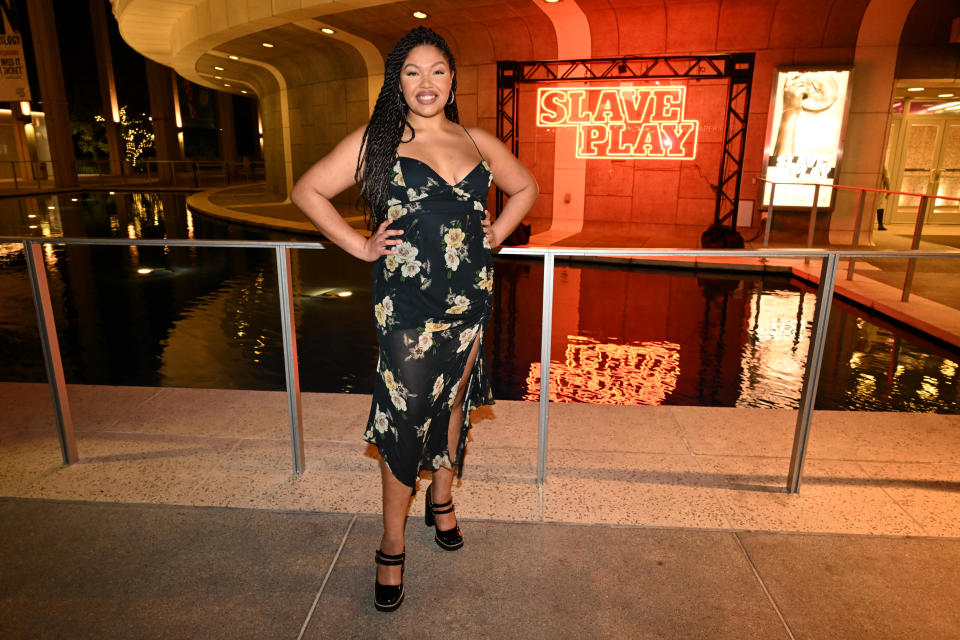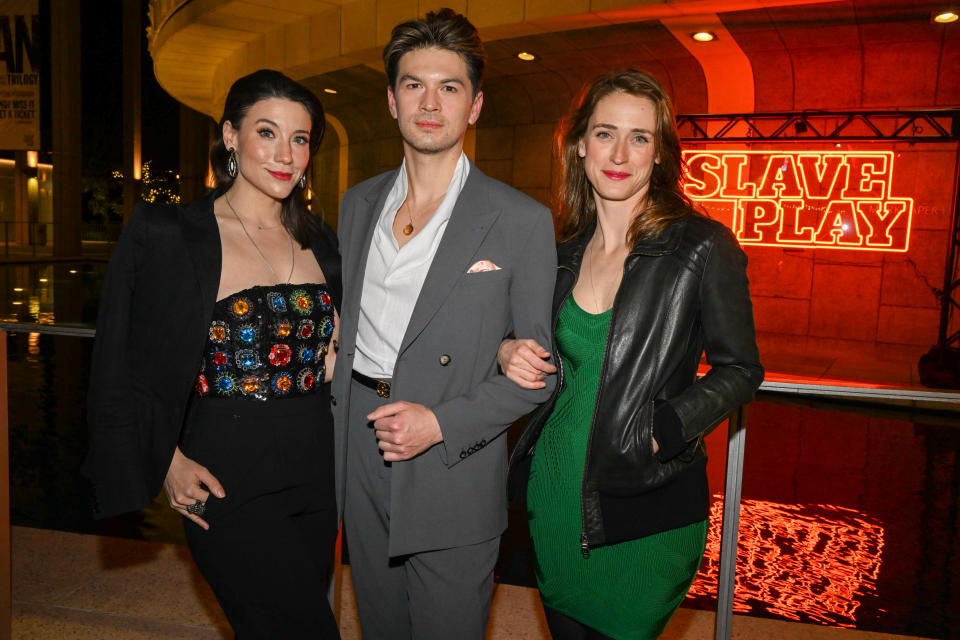Jeremy O. Harris Opens ‘Slave Play’ in Los Angeles After Threatening to Cancel Run

Jeremy O. Harris moved to Los Angeles and lived in the city for about six years trying to be a “serious film actor” before becoming the celebrated playwright he is today.
“I realized I didn’t love film and TV acting,” Harris says. “I loved the theater, so I started the process of becoming a theater artist in the safety and privacy of L.A. without anyone seeing my work outside of a small group of people.”
More from Variety
'Lucy and Desi' Director Amy Poehler Says Ball and Arnaz Were 'The First Ultimate Power Couple'
Matthew McConaughey Is Open to Appearing in 'Magic Mike 3': 'Channing Tatum, Call Me, Bro!'
Ryan Reynolds Compares 'The Adam Project' to 'E.T.,' Insists Deadpool Is Not in 'Doctor Strange 2'
Fast forward to Wednesday night. His Tony-nominated “Slave Play” opened at L.A.’s Mark Taper Forum. It’s the first production at the theater in two years after shutting its doors due to the pandemic.
“It’s an honor that this is the first show that they’re coming back with,” Harris said. “It’s not like this is ‘Hamilton,’ you know what I mean? It’s not a play that’s going to immediately sell out. It’s not supposed to do that necessarily, right? It’s a work that doesn’t necessarily welcome people in. Even in the title is like a challenge. So it’s cool that that they took this challenge on even after I challenged them another way.”
Harris is referring to his threat in October to cancel the run if the Center Theatre Group – the Taper falls under the arts organization – didn’t increase its representation of female playwrights in its upcoming programming. CTG responded quickly and promised to offer more opportunities for artists from underrepresented communities.
“These are dialogues that people have been having in the theater for many, many, many years,” Harris said. “Institutions are now articulating that they’re ready to hear — not just articulating, but like, showing — that they’re ready to hear them.”

Dan Steinberg for Variety
He is hopeful that the CTG’s quick action is not a temporary fix for them or for other theaters that have talked about welcoming more diverse storytelling and projects. “I hope it becomes a mass movement where we start seeing seasons that look different. Not just next year, but for the next decade, next two decades,” he said. “If we think about the work that’s been most exhilarating from the 20th century, very little of it is the work that’s made by the same type of person. I hope that we can foster more voices.”

Dan Steinberg for Variety
Broadway’s post-pandemic reopening saw a burst of Black writers and stories, a moment many celebrated as a monumental shift. “That makes me nervous in the sense I don’t know how sustainable they’re attempting to make that,” Harris said. “I hope that everyone who’s producing on Broadway is actively looking at ways to bolster and foster that type of season so that it’s not a novelty, but like a necessity. It’s a necessity to have an inclusive season on Broadway and not just something novel to do when theaters are empty anyway.”
He added, “We haven’t done all the work. We can do more work. It shouldn’t just be Black voices. It shouldn’t just be straight boys. It should be a bunch of queer people, a bunch of women, a bunch of people of color. There’s a lot of labor that has to be done. And the labor is difficult. It’s not easy.”

Best of Variety
Sign up for Variety’s Newsletter. For the latest news, follow us on Facebook, Twitter, and Instagram.

